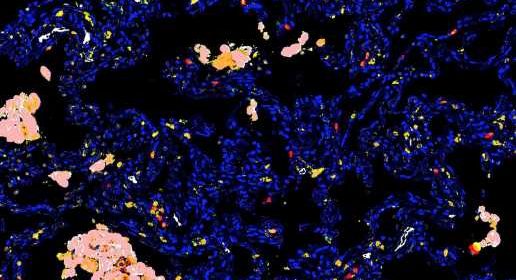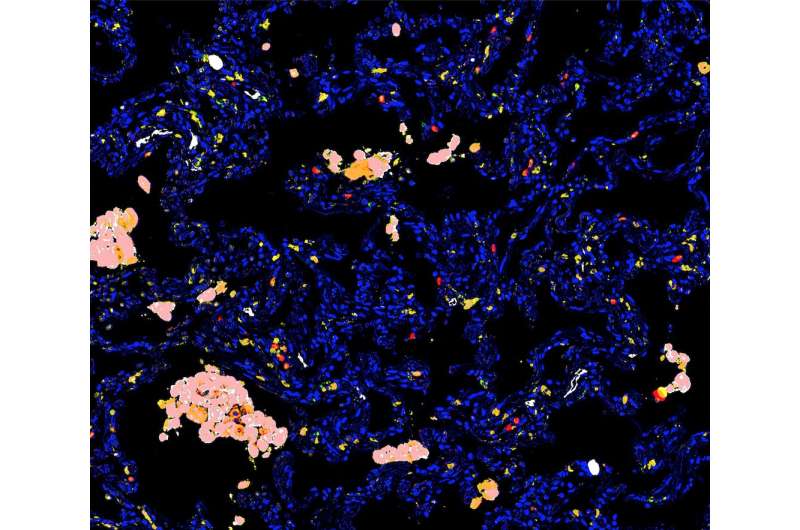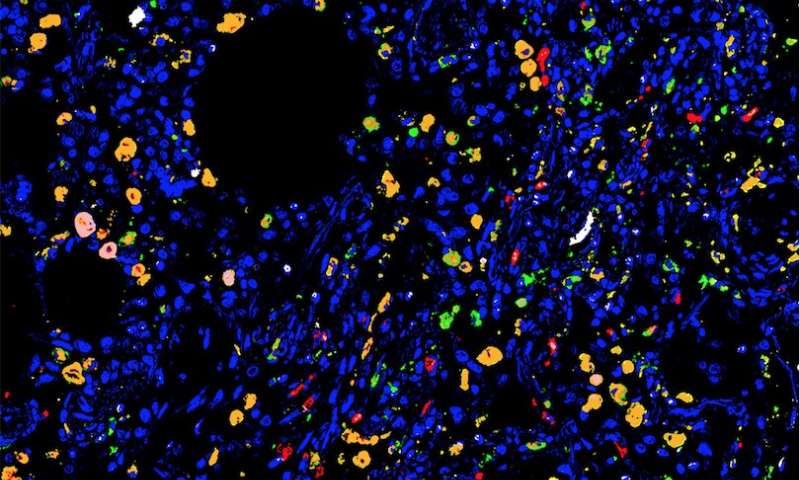Study provides further evidence that immune cell dysregulation is a driver of COVID-19 severity

In one of the largest single-center COVID-19 cohort studies to date, researchers at the Icahn School of Medicine at Mount Sinai, using samples collected during the peak of the pandemic in New York City, have identified a key driver of COVID-19 disease severity.
The findings, published in the September 14 edition of Science Translational Medicine, suggest that lung damage is linked to the loss of immune cells called macrophages that normally reside in the lung and organize tissue repair, followed by an influx of new macrophages from the blood into the lung that cause inflammation. Blocking the entry of inflammatory macrophages and preventing the loss of reparative lung resident macrophages may be a therapeutic strategy for treating SARS-CoV-2 and other viral lung diseases.
Nearly three years since the start of the COVID-19 pandemic in late 2019, the virus continues to fuel a worldwide health crisis.
“Despite the development of vaccines that prevent disease, and therapies to treat COVID-19 and other infections, these critical viral diseases remain a major unmet need in medicine,” said lead author Steven Chen, a recent MD/Ph.D. graduate in the laboratory of Miriam Merad, MD, Ph.D., a senior author of the study and Director of the Marc and Jennifer Lipschultz Precision Immunology Institute (PrIISM) at the Icahn School of Medicine at Mount Sinai.
“Our study sought to identify drivers of disease severity and mortality in order to identify therapeutic strategies that could halt the progression of severe lung viral infections.”
In the study, blood and lung fluid samples of healthy controls and 583 COVID-19 patients admitted to Mount Sinai were collected as part of the Health System’s COVID-19 Biobank. The cohorts were longitudinally followed from March through December 2020.
The investigators used serum proteomics and immune cell phenotyping to compare the two groups’ systemic immune responses and identify potential disease severity drivers that could predict which patients were most at risk and guide new treatment protocols. They found that COVID-19 severity was linked to a shift in the specialized functions of different macrophage populations in the lung.
This may partly explain why older adults, who have fewer reparative lung resident macrophages to start with and can produce more inflammatory blood-derived macrophages, may be predisposed to severe disease, say the researchers.
The researchers emphasize that the study highlights the need to improve measurements of the immune system in patients. “Clinically available immune tests are very limited, which is unfortunate because understanding the composition of immune cells circulating in the blood, and the inflammatory molecules they produce, can be extremely informative and help identify new treatments for many different diseases,” says Dr. Merad.
“Our study demonstrates that immune profiling could help stratify patients according to their disease drivers and identify therapeutic strategies tailored to these drivers,” said Dr. Merad. “In our investigation, a subset of patients could have significantly benefited from restoring reparative lung resident macrophages. The use of immune profiling studies in the clinic would have helped make this call quite early during the disease process.”
Source: Read Full Article

